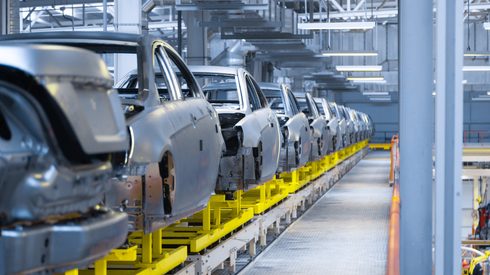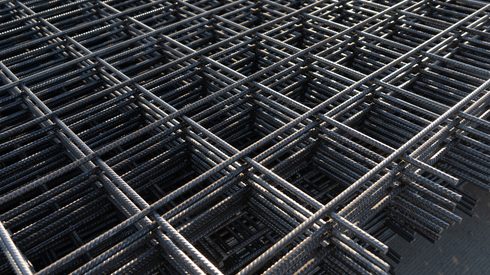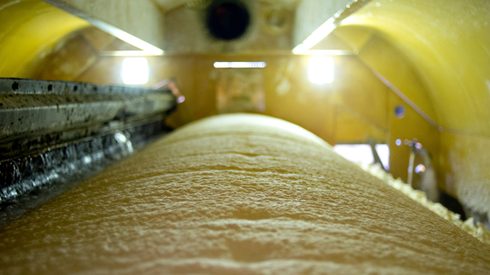In his victory speech after the election on Wednesday November 6, the president-elect, reiterated his goal of boosting fossil-fuel production in the US, reaffirming promises he made during his election campaign.
During his first stint as president he withdrew the US from the Paris Agreement on climate change – a move quickly reversed by the subsequent president, Joe Biden – and in campaigning he said he would do so again.
Decarbonization was a prominent theme between 2020 and 2022, driven by Environmental, Social, and Governance (ESG) considerations, a trader based in the east China province of Zhejiang told Fastmarkets. But, since then, “many decarbonization projects have made no financial sense,” the trader said, adding that continuing with decarbonization would become an even more serious challenge when Trump takes office in January.
During Biden’s administration, the US Department of Energy has announced up to $6 billion in decarbonisation investments and two steelmakers, Cleveland-Cliffs and SSAB were key beneficiaries – each receiving a $500 million grant to establish clean hydrogen-based steelmaking facilities in the US.
Shortly after that announcement, a rumor surfaced that Cleveland-Cliffs might abandon the grant for producing green steel due to difficulties in convincing downstream buyers to pay a green premium for the steel it would produce. And while the project appears to be progressing, doubts will now be growing and market participants around the world expect to see many challenges ahead for hydrogen projects.
“Trump is going to refocus on increasing oil and natural gas production and if he reduces grants for the renewable energy sector, green hydrogen will become even less financially viable,” a steelmaker in the southern China province of Hunan said.
“The lack of funding could slow the development of green hydrogen projects, making it even more difficult to compete economically with steel products that are produced [using] traditional fossil fuels,” the steelmaker added.
Some market participants remain optimistic, however, and said the US renewable energy sector might not be as severely impacted as some might expect.
That optimism stems from the close ties during the presidential election between Trump and Elon Musk – the chief executive of the Tesla electric vehicle (EV) business and a leading entrepreneur in the renewable energy sector, according to a steelmaker in Hebei province in northern China.
The steelmaker said that decarbonisation investments will continue in other regions, including in China, which is the world’s largest steel producer and which is pursuing decarbonisation initiatives and actively working in partnership with other countries.
Shanxi-based Jinnan Iron & Steel Group, for instance, recently announced that it will work with Brazil’s largest iron ore producer, Vale, to establish an iron ore concentration plant in the Middle East to support the production of the key raw materials for low-carbon steel production.
Likely impact of Trump’s import tariffs
During the election campaign, Trump also proposed imposing a 10-20% across-the-board tariff on all imports into the US, with an additional 60% tariff on all imports from China.
And the impact of Trump’s second administration on the steel industry will be determined by the extent to which he sticks to the promises he made during the presidential campaign, sources told Fastmarkets.
“Most steel imports are already subject to some form of tariff, so the immediate impact of additional tariffs might be minimal unless they are increased significantly,” a Singapore-based trader said.
“Even if the tariffs reach high double digits, the cost would ultimately be borne by US consumers,” the trader added, noting that the short-term impact will mainly result in higher inflation in the US.
For the time being, the specifics of Trump’s proposed tariffs on all imported products remain unclear. But if a blanket tariff is implemented on all imported goods, including raw materials, it could benefit domestic steelmaking raw material producers in the US, sources said.
And a London-based trader said that US scrap dealers and domestic producers of hot-briquetted iron (HBI), such as ArcelorMittal and Cleveland-Cliffs, would ultimately benefit because imports would become less competitive.
The trader pointed to the fact that the US currently imports large quantities of pig iron from Brazil, so a tariff increases on those imports would probably lead to a price spike in any domestic alternatives, including steel scrap and HBI.
But the Singapore trader said the long-term consequences will be more complex, because any onshoring initiatives – bringing production back to the US – would take a considerable time to implement and Trump is unlikely to still be in office by the time any such initiatives start to have an impact.
Discover how the 2024 US election is impacting and could impact US and global commodity markets with Fastmarkets. Head to our US election hub.






